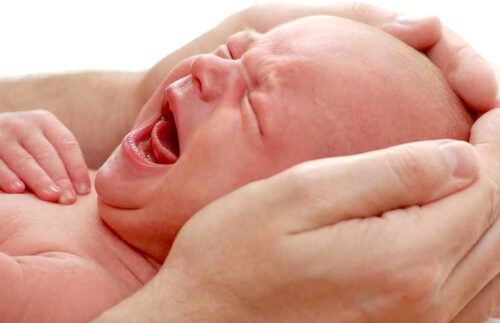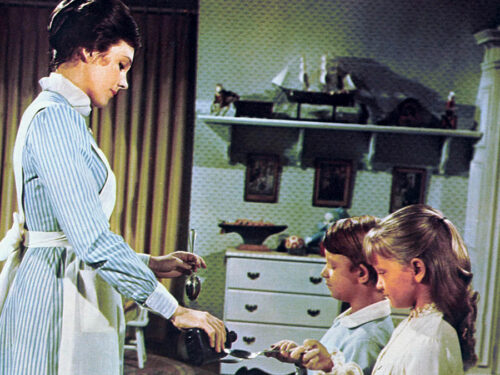Clinical
Conditions
- ADHD and Puberty – Part Two
- ADHD, ADD, HK, ADHK, LDHK, MBD, Hyperactive, “Slow”
- ADHD, Hyperactivity: Don’t JUST Take My Word For It
- ADHD: Treatment Followup – Lifelong Learning
- Amblyopia and Developmental Dysplasia of the Hip
- As Much As You Want To Know About Autism – FIVE Videos
- Autism: Autistic Concert Pianist
- Best Treatment For ADHD: Success In Something
- Childhood Diabetes and a New Medicine – Part 1
- Childhood Diabetes and a New Medicine – Part 2
- Childhood Diabetes Update
- Childhood Diabetes: Intro/Index
- Hyperactivity and Puberty – “ADHD on Testosterone”
- Hyperactivity Treatment: Cognitive Training, Medication or Both
- Hyperactivity Treatment: Is There ANYTHING That Really Works?
- Hyperactivity Treatment: What Really Works… Really
- Hyperactivity: First, The Diagnosis
- Hyperactivity: The Boy or Girl – The Patient
- Leg Pain on One Side in Children – Perthes Disease
- New Guidelines: Autism, Flu and ACL Tears
- Night Terrors and Nightmares
- Parenting ADHD: Errors of commission and omission
- Parenting: The “C” Word—Colic
- Speech “Non-fluency” – Stammering, Hesitancy, Delay, and Stuttering in children.
- The Charles Bonnett Syndrome: An Under-reported Phenomenon
- To Understand Autism
- What We Know About Autism
Doctors
- #40 Lawrence (Larry) Einhorn (1942-)
- 10 Medical Breakthroughs Unaccepted At First – Part One
- 10 Medical Breakthroughs Unaccepted At First – Part Three
- 10 Medical Breakthroughs Unaccepted At First – Part Two
- 15 Accidental Medical Discoveries – Part II
- 15 Accidental Medical Discoveries – Part III
- 50 Influential Docs in History: Nikolay Ivanovich Pirogov (1810-1881)
- Accidental Medical Discoveries – New Series
- Carlos J. R. Chagas – Malaria, American Trypanosomiasis, Pneumocystis
- Charles D. Kelman – Revolutionized Care of Cataracts
- Cicely D. Williams
- Communication With Your Doctor – when things don’t seem to be going right
- Cost Effective Medicine – why can’t we seem to find it?
- Dame Cicely Saunders – Nurse, Doctor and Founder of Modern Hospice
- Doctor Helen Brooke Taussig – World Renowned Cardiologist
- Doctor Henry Gray (1827-1861) – Anatomist, Author, Devoted Uncle
- E. Donnall Thomas, Joseph Murray-Most Influential Doctors
- Elisabeth Kübler-Ross
- Elizabeth Blackwell
- George Papanicolaou: Cytopathology, Cancer
- Grandma’s Who Haven’t Seen Measles
- James Parkinson: Social Activist and Advocate, Parkinson’s Disease and Palentology
- John Snow: Water Pumps, Cholera and Epidemiology
- Joseph Kirsner: Colon Cancer, IBS, Educator, Doctor
- Mahmut Gazi Yaşargil: Micro-Surgery, Neurologic Pioneer
- Medical Breakthroughs, Unaccepted, Rejected and Attacked (at first)
- Most Influential Doctor: David L. Sackett – Evidence-based Medicine
- Obscure Medical Terms
- Robert Koch: Modern Bacteriology
- Stanley Dudrick: Total Parenteral Nutrition
- Stanley Prusiner: Neurodegenerative Diseases
- Top 50 Most Influencial Doctors of All Time: Intro/Index
- Veterinarians V Physicians
- Victor McKusick: Medical Genetics
- Virginia Apgar: Blue Babies
- Watson, Crick, DNA, Nobel Prize
- When Doctors Don’t Do A Good Physical Exam – Patients Loose
- William Harvey – Discovery of Circulation
- Yogi Berra’s Tips For Practicing Medicine and Parenthood
- Zora Janžekovič – Pediatric Burn Pioneer
Illness
- 10 Travel Diseases to Consider – Part 2
- 10 Travel Diseases to Consider Before and After the Trip
- 2014: New Medical Guidelines Intro/Index
- Adolescent Acne – diagnosis and treatment methods
- Alcohol Intoxication in Children
- Allergy (atopy) in infants, children and adolescents
- Allergy: Spring Hay Fever and Otherwise
- Appendicitis
- Attention Deficit Hyperactive Disorder (ADHD) Series: Intro/Index
- Autism: Autistic Concert Pianist
- Back To School: Series Intro/Index
- Bed Wetting (Enuresis) – 1
- Bed Wetting (Enuresis) — Part 2
- Bug Bites Series: Intro/Index
- Cardiac Arrest: Commotio Cordis – Prevention, Return To Play
- Cardiac Arrest: Commotio Cordis – Treatment and Prevention
- Child Cardiac Arrest: Intro/Index
- Child Diseases Parents Should All Know About – Part 1
- Child Diseases Parents Should All Know About – Part 2
- Child Diseases Parents Should All Know About – Part 3
- Child Diseases Parents Should All Know About – Part 4
- Child Diseases Parents Should Know – Part 10
- Child Diseases Parents Should Know – Part 5
- Child Diseases Parents Should Know – Part 6
- Child Diseases Parents Should Know – Part 7
- Child Diseases Parents Should Know – Part 8
- Childhood Concussion Series: Intro/Index
- Childhood Rashes and Numbered Diseases: Intro/Index
- Children’s Back To School Medical Problems – Part 1
- Children’s Back To School Medical Problems – Part 2
- Children’s Bacterial Skin Infections
- Common Foreign Bodies Found In Children and Teens
- Common Pediatric Recreation and Sport’s Injuries – Part Two
- Common Pediatric Sports and Recreational Injuries – Fractures
- Conjunctivitis (Pink Eye)
- Constipation and Soiling in Children
- Difference Between Flu and Colds
- Diseases All Parents Should Know Series: Intro/Index
- Diseases Parents Should Know, 9 – Flu, Impetigo, Ringworm
- Drugs and Breast Milk – Alcohol Withdrawal
- Five Things You Should Know About Concussion and Contact Sports
- Head Injury in Children
- Head Lice and Tea Tree Oil
- Heat Illness In Children: Heat Stroke, Rash, Exhaustion
- Hospitalized Newborns – One
- How to Take A Temperature: Child
- Infant Colic
- Kawasaki Disease: A Parent’s Guide
- Keeping Sick Kids Home from School or Daycare
- Leg Cramps in Children
- Marijuana Series: Intro/Index
- Marijuana: Test What You Know
- Medical Marijuana
- Medical Marijuana – What, If Anything, Is it Good For?
- Medicine: Do Nothing Whenever Possible
- Meningitis In Children
- Migraine Headache in Children
- Mosquito Illnesses – Zika, Dengue and Others
- New Concussion Biomarker Possible For Children’s Head Injuries
- New Guidelines: Autism, Flu and ACL Tears
- New Kids Health Guidelines In 2014
- Numbered Diseases of Childhood: FIFTH Disease – Erythema Infectiosum
- Numbered Diseases of Childhood: FIRST Disease – Measles
- Numbered Diseases of Childhood: FOURTH Disease – Filatov-Dukes’ Disease
- Numbered Diseases of Childhood: Rashes
- Numbered Diseases of Childhood: SECOND Disease – Scarlet Fever
- Numbered Diseases of Childhood: SIXTH Disease – Roseola
- Numbered Diseases of Childhood: THIRD Disease – Rubella
- Otitis Externa: Swimmer’s Ear, More Than An Annoyance
- Parenting: Circumcision
- Parenting: Fever is Your Friend
- Parenting: Frequent Illnesses – related to number of past and present exposures
- Parenting: How To Give Medicine To A Child
- Parenting: The “C” Word—Colic
- Parenting: The most common cause of feeling tired is being tired
- Poison Ivy, Oak and Sumac in Children
- Power Lawn Mower Injuries in Children
- Respiratory Hazards of Wood Stoves
- Scabies “Seven Year Itch” – a Comeback in Children
- Scabies in Children
- Spinal Taps in Children
- Stings and Bites in Children
- Sudden Cardiac Death in Child Athletes
- Summer Childhood Illnesses and Injuries – Part 2
- Sunburn in Infants, Children and Adolescents
- Ten Travel Diseases: Intro/Index
- Tonsillectomy – part two
- Tonsillectomy – Risks and Benefits
- Torn Anterior Cruciate Ligament (ACL) – Lachman Test
- Treating Children’s and Teen’s Colds
- Treating Cough in Infants, Children and Teens
- Treating Fever in Infants, Children and Teens
- Urinary Tract Infections in Children
- What’s Eating You? Bedbugs, Mites and Lice
- What’s Eating You? Ticks and Fleas
- Why Is Meningitis So Dangerous?
Parenting
- A Good Book is Like A Secret Door
- Advice to Ignore, Things to Remember and Stuff Not To Stress About – Part 3
- Am I Ready To Have Sex?
- Celine Dion and Josh Groban
- Children’s Ability To Read
- Children’s Self Esteem
- Choose Your Battles With Teens Over Hair and Clothing
- Choosing a Name For a Child
- Discipline in a Non-Confrontational Parent
- Discipline Series: Intro/Index
- Discipline, Parents, Kids and “Natural Consequences”
- Doctor’s Talking About Puberty and Sex
- Feeling – A Special Sense
- Golden Rule of Parenting: Sleeping Through The Night
- Growing Up – When Did THAT Happen?
- Healing Hugs – Sometimes the Best Medicine
- Instilling Concern and Respect For Others In Children and Teens
- Julie Lythcott-Haims: How to raise successful kids — without over-parenting
- Just A Part Time Kid – Divorce Part 1
- Just A Part Time Kid – Divorce Part 2
- Medicine: Do Nothing Whenever Possible
- Most Important Parenting, When It Appears The Least
- Nose Picking In Public a Habit To Break
- Parenting About Sex, Pressure and Promiscuity
- Parenting About Sex, Pressure and Promiscuity Series: Intro/Index
- Parenting ADHD: Errors of commission and omission
- Parenting Advice to Ignore Series: Intro/Index
- Parenting Advice to Ignore, Things to Remember and Stuff Not To Stress About – Part 1
- Parenting Advice to Ignore, Things to Remember and Stuff Not To Stress About – Part 2
- Parenting Children and Teens to Be Achievers
- Parenting Is Saying No
- Parenting: “Local Expert on Tattoos and Body Piercings Passed Away”
- Parenting: 5 Dangerous Things You Should Let Your Kids Do
- Parenting: A Good Night’s Sleep, Infant Sleep Training
- Parenting: An Astronauts Guide To Optimism
- Parenting: Attitudes – Unintentional Learning
- Parenting: Be selfish
- Parenting: Boys and Girls are different
- Parenting: Circumcision
- Parenting: Consider the Option of Telling the Truth
- Parenting: Dealing With Bad “Tween” Behavior
- Parenting: Discipline
- Parenting: Draw your own circles
- Parenting: Fever is Your Friend
- Parenting: Four bad ages
- Parenting: Frequent Illnesses – related to number of past and present exposures
- Parenting: Good behavior is expected, not rewarded
- Parenting: Good Night’s Sleep
- Parenting: How To Give Medicine To A Child
- Parenting: Loss and Grief – My Velveteen Rabbit
- Parenting: My Malaprop Mom
- Parenting: Natural Consequences are the Best Discipline
- Parenting: Never Trust Newborns
- Parenting: Picky Eaters
- Parenting: Seventh Grade is a pivot point
- Parenting: Take Credit For The Good Things About Your Children, Blame Others For The Bad
- Parenting: Talk To Strangers
- Parenting: The “C” Word—Colic
- Parenting: The most common cause of feeling tired is being tired
- Parenting: The Two Greatest Barriers To Parenting – Money and Education
- Parenting: Toilet Training Is Not a Parenting Test
- Parenting: Why Not Immunize Children, Parent’s 10 reasons
- Real Pediatrics: Dr. Gregory Alan Barrett
- School PHOBIA
- Sibling Rivalry
- Sleep Problems: Older Children, Toddlers, Stumbling Blocks
- Stress In Children
- Teaching Teens About Healthy Relationships
- Teenagers: Maturing and “THE Talk”
- Telling Truth or Lies to Children: Parenting
- The Simple Power of Hand Washing
- Three Magic Questions of Breastfeeding
- Traveling With Children – a Secret Weapon
- Vaping
- When Children Travel Alone
- When I Grow Up – I Wanna Be Happy
- When Should School Start For Teens
- Why Kids Today Don’t Know How Much Fun a Road Trip Can Be
- Why So Many Illnesses In My Child
- Yogi Berra’s Tips For Practicing Medicine and Parenthood
Wellness
- Advice to Ignore, Things to Remember and Stuff Not To Stress About – Part 3
- Am I Ready To Have Sex?
- An Eye Exam On A Smart Phone?
- Body Odor
- Boys and Body Image
- Breastfeeding – Recent Findings and Recommendations
- Breastfeeding and Human Milk
- Breastfeeding Series: Intro/Index
- Child/Teen Immunization Schedule, 2014: Changes You Should Know
- Childhood Immunization Schedule: Intro/Index
- Childhood Immunization: Updated 2013 guidelines
- Children’s Athletic Warmups
- Children’s Fitness: The Bleep Test
- Children’s Health and Fitness: Intro/Index
- Children’s Health: Less Healthy Than 50 Years Ago
- Children’s Jogging
- Children’s Sleep: Series Intro/Index
- Children’s Sports
- Children’s TV Screen Time: Consequences, Limits, Interventions – Part 1
- Dental Care of Children and Teens – causes and prevention of caries (cavities)
- Dental ID of Children
- Do You Take Your Body For Granted
- Emergency Medical System (EMS) – Prevention
- How To Kill A Child Athlete
- Immunization Safety Series: Intro/Index
- Immunization Schedule: Birth to Eighteen
- Immunization v. Vaccination: A Story of Gullibility, Fear, Despicable Avarice and Scams
- Immunization v. Vaccination: A Story of Gullibility, Fear, Despicable Avarice and Scams – Part 2
- Infant Circumcision
- Infant Circumcision Now Both Advised and Safer
- Innocent Heart Murmurs in Children
- Internet Vaccination Advice Nearly Killed Their Son
- Measles: The Real Evidence
- Medical Proverbs: Where Did They Come From?
- Meditation For Kids and Time-Outs
- More Medical Proverbs – Do They Work?
- New Concussion Guidelines For Children’s Sports
- Obesity Series: Intro/Index
- Parenting About Sex, Pressure and Promiscuity
- Parenting Advice to Ignore, Things to Remember and Stuff Not To Stress About – Part 1
- Parenting Advice to Ignore, Things to Remember and Stuff Not To Stress About – Part 2
- Parenting: Boys and Girls are different
- Parenting: Circumcision
- Parenting: Four bad ages
- Parenting: Never Trust Newborns
- Parenting: Toilet Training Is Not a Parenting Test
- Parenting: Why Not Immunize Children, Parent’s 10 reasons
- Puberty and Underwear: Boxers, Briefs or Commando?
- Puberty Series: Intro/Index
- Puberty: Psychological Stages
- Puberty: Tanner Stages – Boys
- Puberty: Tanner Stages – Girls
- Puberty: Tanner Stages and Growth
- Reasons Why Parents Choose Not To Immunize Their Children
- Safe Sleep For Infants: SIDS & SUIDs
- Sexual Attraction and Orientation
- Teenagers: Maturing and “THE Talk”
- The Pediatric Physical Examination
- Three Magic Questions of Breastfeeding
- Vaccine Information Statements (VISs)
- Vaping
- Vintage Proverbs: Intro/Index
- What’s Wrong With Our Food System: Birke Baehr
- Why We Need a “Good Night’s Sleep”
- Yoga For Children and Stress Reduction
- You’ve Come A Long Way Baby
Commentary
FAQ
Link
Recent News
Resources
Series
/* --------------------------------------------------------------------------------------------- END added code trial ------------------------------------------------------------------------------------------------ */Showing posts from: Illness
Parenting: The “C” Word—Colic
Why Is Meningitis So Dangerous?
TED-ed is a program where information produced by noted authorities are “visualized” by artists in order to teach more effectively. Such is the case with this timely educational piece covering a wide-spread outbreak of meningitis in Saudi Arabia written by Dr. Melvin Sanicas a British educator. The piece was also directed by Balint Gelley and narrated by Addison Anderson.
Parenting: The most common cause of feeling tired is being tired
Parenting: Frequent Illnesses – related to number of past and present exposures
Parenting: Fever is Your Friend
Medicine: Do Nothing Whenever Possible
Best Medicine is No Medicine
Do Nothing Whenever Possible
by Gregory A. Barrett, M.D.
Autism: Autistic Concert Pianist
Derek Paravincini, Autistic and Premature

Born three and a half months prematurely, Derek Paravicini is blind but has literally become an Autistic Concert Pianist. But with perfect pitch, innate talent and a lot of practice, he became a concert pianist by the age of 10. Here, his longtime piano teacher, Adam Ockelford, explains his student’s unique relationship to music, while Paravicini shows how he has ripped up the “Chopsticks” rulebook.
Derek Paravicini weighed half a kilogram when he was born, prematurely at just 25 weeks. Growing up blind and with severe autism, Paravicini had trouble communicating, but was fascinated by sound. He began teaching himself how to play the piano and, by 4-years-old, had taught himself an incredible catalogue of songs that he played with unusual technique. Soon, Paravicini began studying with Adam Ockelford, a teacher at the Linden Lodge School for the Blind in London, who saw in him the marks of a highly inventive musician. Paravicini gave his first concert at age 7 and, two years later, played the Barbican Hall.
TV and Stage
Once a child prodigy, he’s matured into a creative musician, able to reimagine songs in ways few can. Now in his thirties, Paravicini has continued to grow as a performer, with the ability to reimagine complex pieces of music even after only hearing them once. He was featured in the series Extraordinary People in the United Kingdom and, in the United States, on Stan Lee’s Superhumans, which verified his musical ability and confirmed his savantism. Paravicini has also worked with composer Matthew King. The two have played improvised pieces on BBC Radio and collaborated on Blue, the first concerto ever composed for someone with learning impairment. Autistic Concert Pianist indeed!
Parenting: How To Give Medicine To A Child
New Concussion Biomarker Possible For Children’s Head Injuries
We’ve all heard of the tumult going on over head injuries, concussions, traumatic brain damage, the NFL; but, there is little specific information helping parents about their children and sports.
I’m told that during the war the brits had difficulty accepting that their wounded “chaps” with belly wounds shouldn’t be given tea to drink (it causes peritonitis) because doing so was such a national “tradition”—such is American football!
Read more →
Medical Marijuana – What, If Anything, Is it Good For?
We’ve explained that it’s the politicians and their meddling which has so far prevented medical research from delineating the truth about medical uses of marijuana, when it was clearly used hundreds of years ago for “medical purposes”—so-called: medical marijuana.
Misguided and incompetent laws have even prevented and delayed the finding of ways to remove the “drug’s” psychotropic side effects and make it safe for use!
Read more →
Medical Marijuana
Perhaps most, if not all, of you think of gangsters, terrorists, drug dealers and low-life “users” when you think of the word marijuana. And, with all the idiocy going on by politicians over “legalization” you might also think of societal breakdown, corruption, destruction of families… loss of moral values.
Or, after being beaten into a frazzle by the constant bombardment of so-called “do-gooders” on the media, you may be starting to feel guilty for living the life you’ve always lived trying to do right, knowing what you know about human nature and thinking what you think about the good and evil you’ve seen all around you during your life.
Read more →










